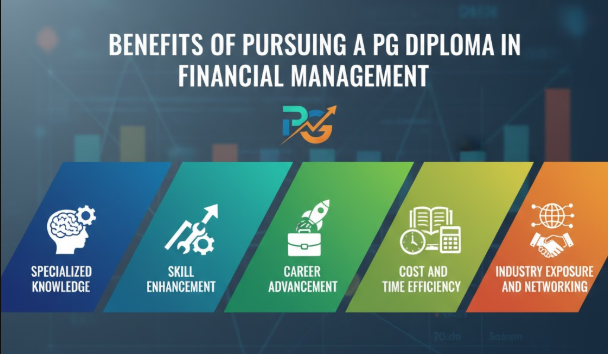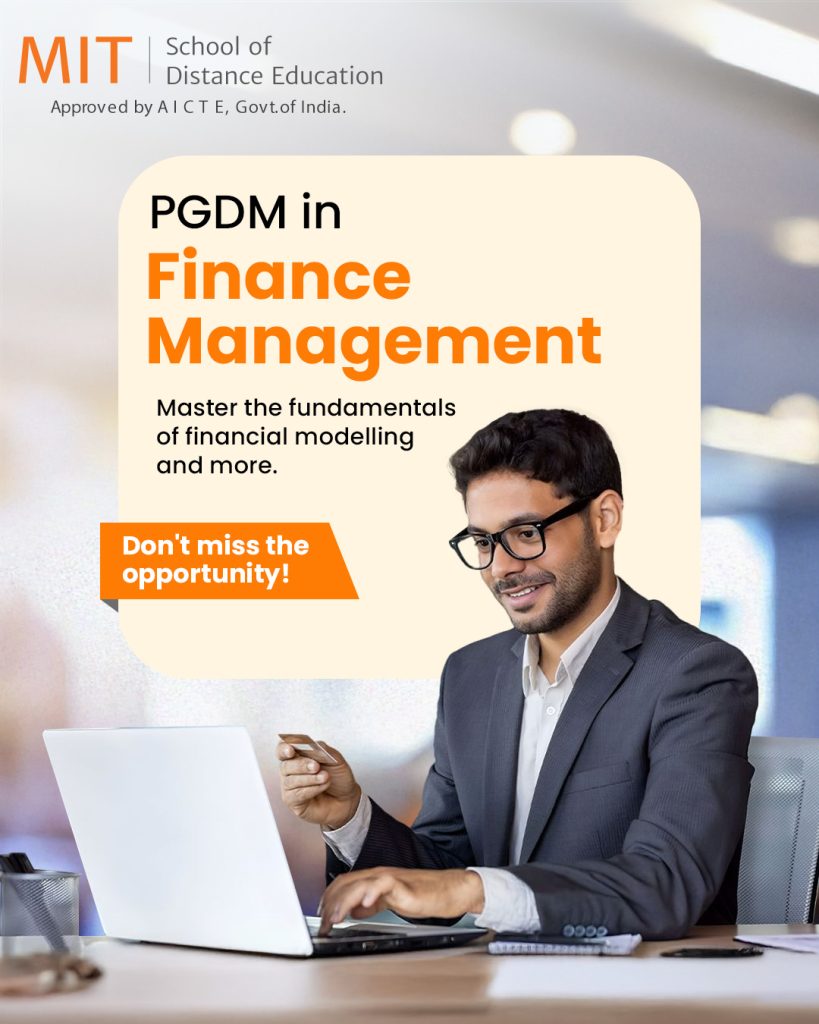
The finance sector has undergone tremendous transformation over the past few years, driven by globalization, technology, and evolving market dynamics. As one of the most influential domains of the global economy, finance not only impacts every industry but is also shaped by global economic developments.
In this fast-evolving landscape, professionals equipped with strong financial expertise are in high demand. One of the most effective ways to gain such expertise is by pursuing a Post Graduate Diploma in Finance (PGDM in Finance) — a program designed to bridge academic knowledge with real-world financial applications.
What is a Post Graduate Diploma in Finance?
A PG Diploma in Finance or PGDM in Financial Management is a specialized program that focuses on advanced concepts in financial management, investment, and risk analysis. Typically spanning one to two years, this post graduation in finance is ideal for working professionals or graduates aspiring to build or accelerate their careers in banking, investment, or corporate finance.
The curriculum emphasizes both theoretical foundations and practical learning, covering key areas such as:
- Financial planning and analysis
- Investment management and portfolio strategies
- Risk assessment and mitigation
- Taxation and accounting
- Corporate finance and mergers & acquisitions
Unlike a traditional MBA, a Post Graduate Diploma in Financial Management provides deeper specialization in finance with a more application-driven approach.
Program Highlights
- Duration: 1–2 years (many institutes also offer a Post Graduate Diploma in Financial Management 1 Year program)
- Eligibility: Any graduate from a recognized university
- Focus: Practical and industry-relevant skill development
- Learning Mode: Flexible online or hybrid options for working professionals
Key Benefits of Pursuing a PG Diploma in Financial Management

1. Specialized Knowledge
Gain in-depth expertise in key areas like financial analysis, capital budgeting, and investment decision-making. A PG in Finance enables professionals to make data-driven financial decisions and contribute strategically to business growth.
2. Skill Enhancement
Develop essential professional skills such as analytical thinking, problem-solving, leadership, and decision-making — all of which are critical for senior finance roles.
3. Career Advancement
Professionals with a Post Graduate Diploma in Financial Management often enjoy accelerated career progression, with opportunities in sectors like banking, insurance, consulting, fintech, and corporate finance.
4. Practical Learning
Most finance diploma courses integrate real-world projects, simulations, and case studies that help learners apply financial principles in live scenarios.
5. Cost and Time Efficiency
Compared to a full-length MBA, a PG Diploma in Finance offers similar benefits in a shorter duration and at a more affordable cost — making it ideal for working executives.
6. Industry Exposure and Networking
Learners connect with peers, mentors, and industry professionals, creating valuable networks that enhance employability and open doors to new opportunities.
Career Opportunities After a PGDM in Finance
A PGDM in Financial Management or Post Graduate Diploma in Finance equips learners for a wide range of roles across sectors. Here are some prominent career options:
In Banking and Investment
- Investment Banker: Manage mergers, acquisitions, and capital raising.
- Financial Analyst: Evaluate financial data and provide insights for investment decisions.
- Portfolio Manager: Manage and optimize client investment portfolios.
- Equity Research Analyst: Study stocks and recommend buy/sell decisions.
In Corporate Finance
- Corporate Finance Manager: Oversee financial planning and strategy.
- Financial Controller: Manage accounting and financial reporting.
- Treasury Manager: Handle liquidity, investments, and capital structure.
In Consulting and Risk Management
- Financial Consultant: Advise firms on strategies, restructuring, and valuation.
- Risk Manager: Identify, assess, and mitigate financial risks.
In Insurance and Accounting
- Underwriter / Claims Analyst: Work in risk assessment and policy evaluation.
- Accountant: Handle budgeting, compliance, and reporting functions.
Entrepreneurial Pathways
With strong financial acumen, professionals can also start their own consultancies or financial advisory firms.
Why Choose MITSDE for Your PG Diploma in Finance Management?
The Post Graduate Diploma in Finance Management offered by MIT School of Distance Education (MITSDE) is designed for ambitious professionals who want to stay ahead in a competitive finance landscape.
Program Duration: 24 Months
Eligibility: Any Graduate
Mode: 100% Online

This program combines theoretical excellence with practical exposure, preparing learners for emerging roles in the digital finance ecosystem. The curriculum is developed by experienced academicians and industry experts to align with the latest financial trends and technologies.
Learning Outcomes:
- Understand the fundamentals of finance and corporate valuation.
- Master financial modeling and analytics tools.
- Learn about international finance, mergers & acquisitions, and financial markets.
- Gain insights into brand valuation, intangible assets, and financial strategies.
- Develop competencies for roles in financial planning, accounting, and investment management.
👉 Explore the program at MITSDE
Final Thoughts
Pursuing a Post Graduate Diploma in Finance is a strategic investment in your career. Whether you’re an aspiring finance professional or a mid-level manager looking to upskill, a PGDM in Finance empowers you with the analytical and managerial expertise needed to thrive in the modern financial ecosystem.
With the right combination of knowledge, skills, and industry exposure, graduates of post graduate diploma in finance programs stand out as strong contenders for leadership roles across global financial sectors.
So, if you’re ready to elevate your career in finance, MITSDE’s PG Diploma in Finance Management is your perfect launchpad.


